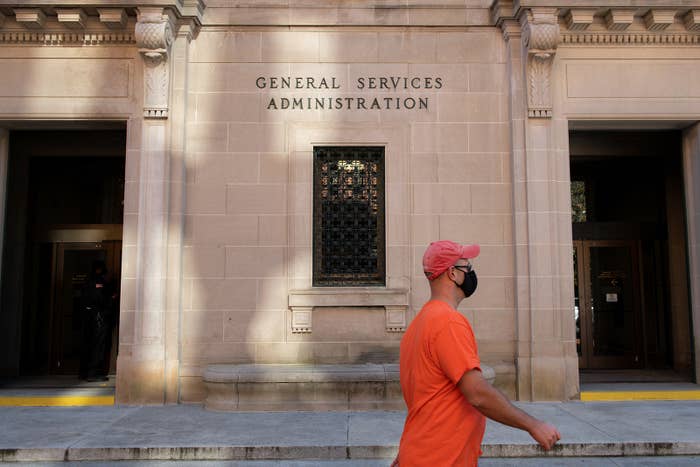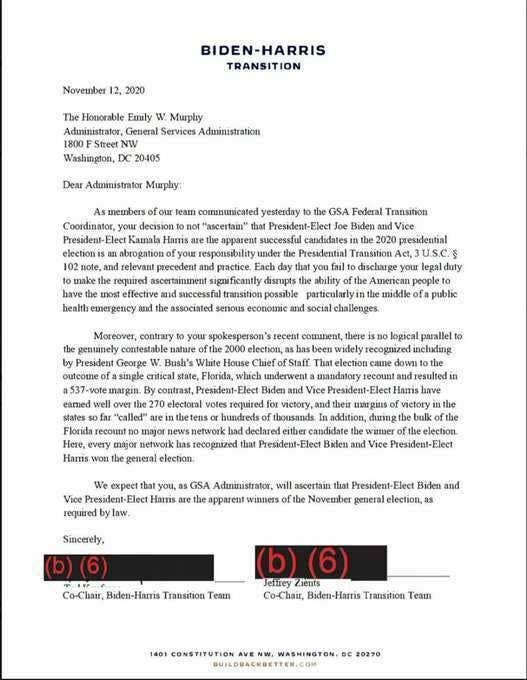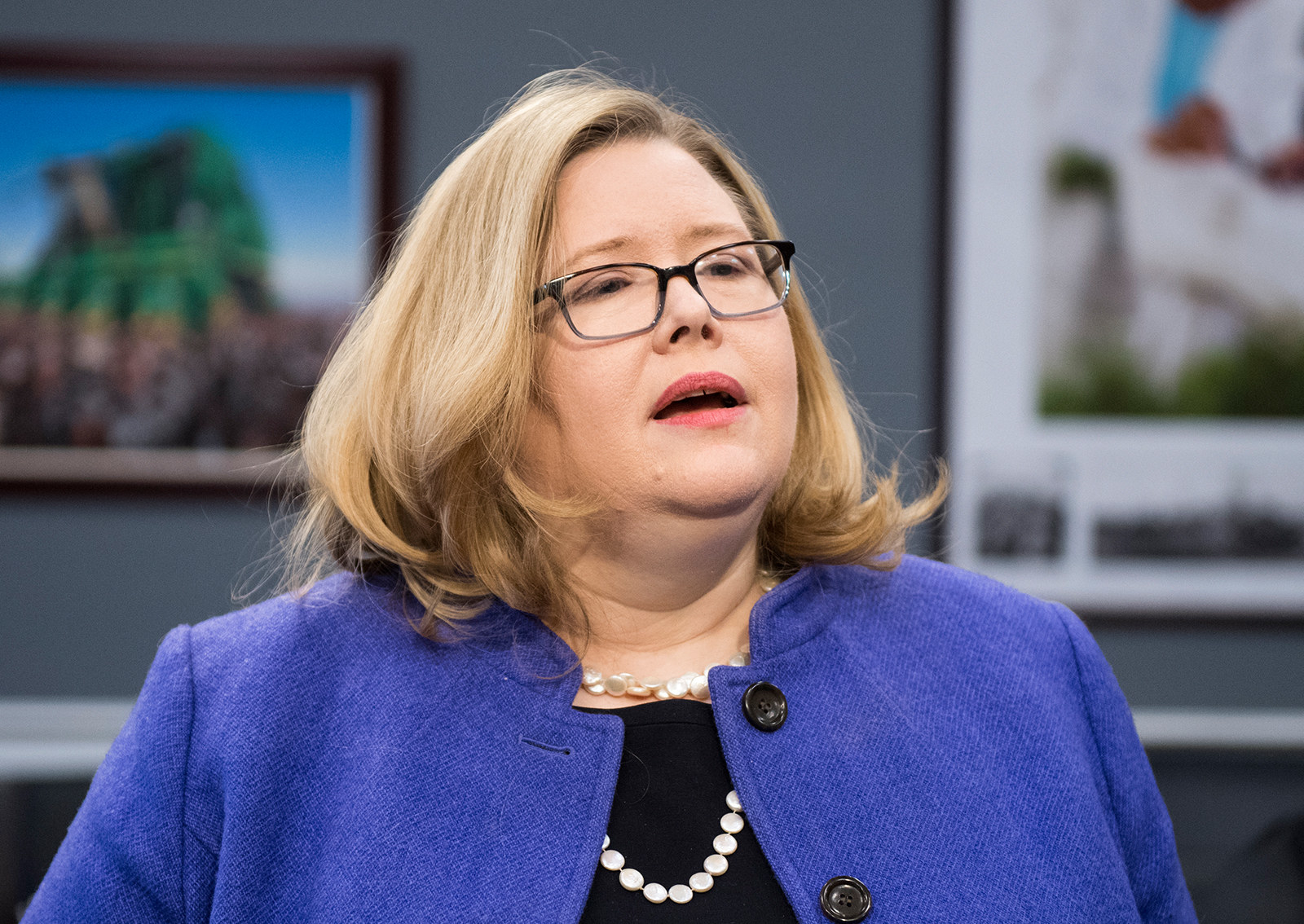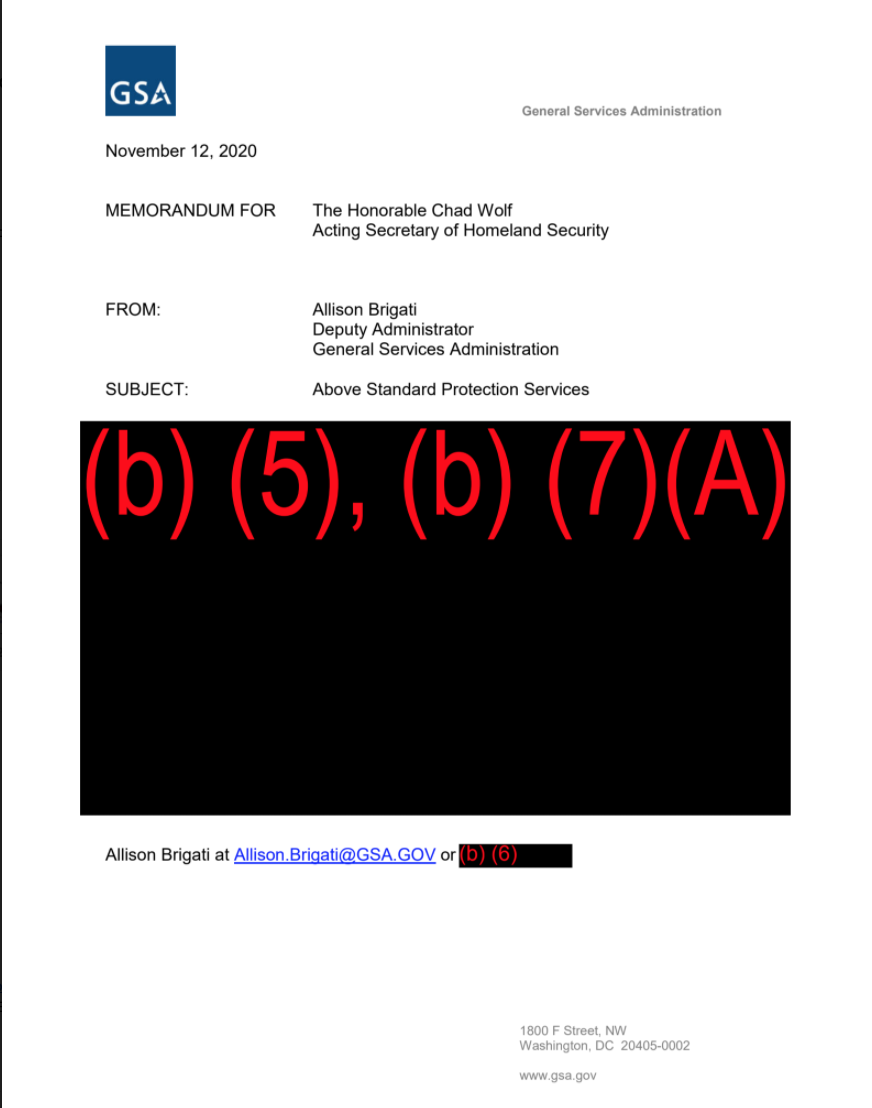
Newly released documents show that when Donald Trump first refused to acknowledge that he had lost the election, Joe Biden may have struck a nonchalant tone in public — but behind the scenes, his team was pushing back hard, demanding that the federal government initiate the formal process of presidential transition.
The co-chairs of the Biden–Harris transition team sent the head of the General Services Administration a scathing letter on Nov. 12 about her refusal to recognize, or “ascertain,” Biden and Kamala Harris as the winners of the election, calling it an "abrogation of your responsibility under the Presidential Transition Act." The letter has not been previously released.

“Each day that you fail to discharge your legal duty to make the required ascertainment significantly disrupts the ability of the American people to have the most effective and successful transition possible, particularly in the middle of a public health emergency and the associated serious economic and social challenges,” wrote co-chairs Ted Kaufman and Jeffrey Zients.
The GSA formally reversed course on Nov. 23.
More than 700 pages of emails and other documents, obtained through the Freedom of Information Act, also show that White House lawyers met with officials from the GSA — a federal agency that manages government buildings, including the offices provided to a president-elect’s team — to discuss the transition both before and after the election. Their discussions are not spelled out in these new records, some of which have been heavily redacted according to the White House’s instructions.
The documents do show that during those uncertain weeks after the election, GSA officials considered the legal ramifications of an unusual path forward: funding two transitions at once.

In an email on Nov. 12, nine days after the election and five days after most news organizations declared Biden the winner, Mary Gibert, the lead official for transitions, shared a document with colleagues offering a legal opinion from 2000 on how that disputed election was handled.
Gibert did not answer emails from BuzzFeed News on Friday seeking comment, nor did Trent Benishek, a White House lawyer assigned to the GSA five days before the election, who was on that email thread. A GSA spokesperson, Pamela Pennington, said that the legal opinion on the 2000 transition was “well known.” She would not answer further questions because BuzzFeed News is suing the GSA for the release of records.
The GSA's refusal to ascertain Biden as the winner of the election was a bureaucratic transaction, which played out in memos and emails. But it was an extraordinary exception to the norm, one step in the unprecedented series of events that culminated in this week's insurrection at the Capitol by a mob of Trump supporters.
The long delay thrust the agency’s leader, Emily W. Murphy, into the center of a growing controversy.

A handful of her emails are included in these new documents, many of which have to do with threats she received. A memo sent to Chad Wolf, who was the director of the Department of Homeland Security, shows that the agency requested additional security detail for her, though the reasons were partially redacted because of an ongoing investigation.
Gibert, the lead transition official, wrote to Biden staffers on Nov. 5 and admitted to “getting concerned about the process and outstanding steps.” The following day, a colleague reported that she was preparing computers and other equipment for a potential Biden transition — but Gibert quickly wrote back: “Want to be clear that no transition will start until ascertainment.”
On Nov. 8, a Biden associate wrote to ask about briefing materials. Gibert again said no.
The following day, Michael D. Wagner, the chief of national events planning for the Defense Department, wrote to Gibert. Again, she was steadfast: “There should be NO agency review team engagement,” a normal part of the process that allows an incoming administration to get to know the current officials.

Biden and his allies began turning up the heat. Over the next few days, the GSA received letters from transition team members, two senators, and multiple Democratic lawmakers urging the agency to move ahead.
On November 9, Reps. Bill Pascrell, Gerry Connolly, and Dina Titus demanded answers from Murphy about why she felt the election was in doubt and whether or not the agency had been ordered to block funds by the White House. “Please detail any interactions you have had with White House personnel on the presidential transition,” they wrote.
On Nov. 12 — nine days after the election — Gibert sent White House lawyer Eric J. Hamilton a document titled “Post Elect Activities.” The entire two-page letter was redacted.

Also that day, Gibert sent an email to staff members containing opinions from the Office of Legal Counsel, a unit of the Justice Department that provides legal guidance to the attorney general and legal opinions and advice to executive branch agencies. The opinions were titled “More than One Transition and Reimbursement for Expenses Prior to Ascertainment.” Both were from the disputed 2000 election.
The next day, another White House attorney, Nicholas Butterfield, emailed Gibert and attached a document for her to review. Gibert’s response is almost entirely redacted, except for one line: “Other than that looks good.”

